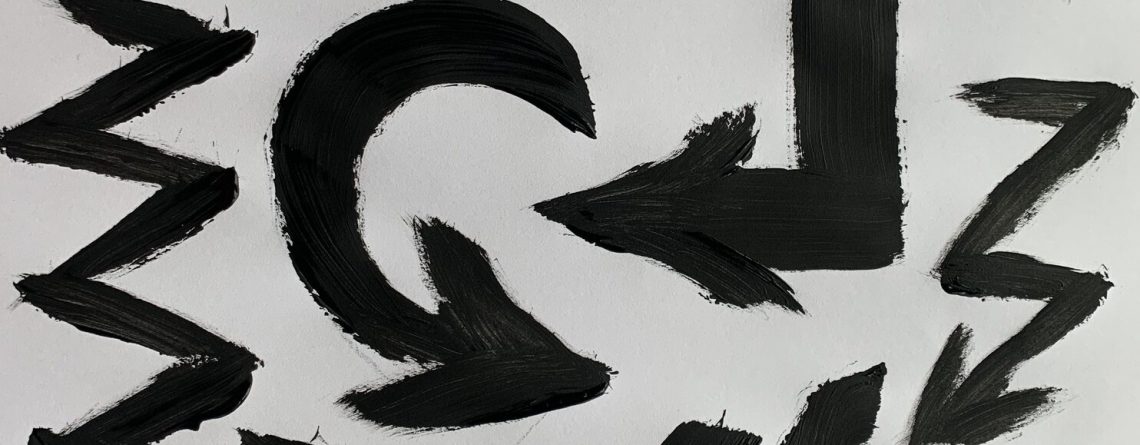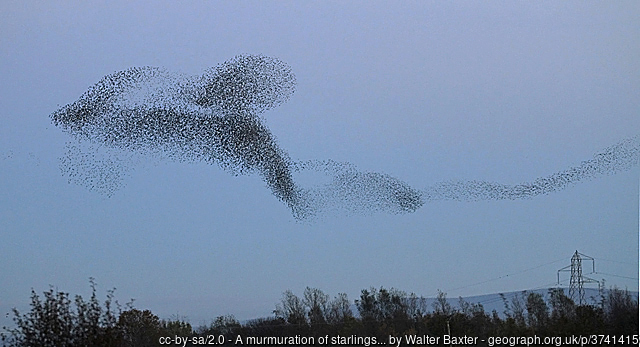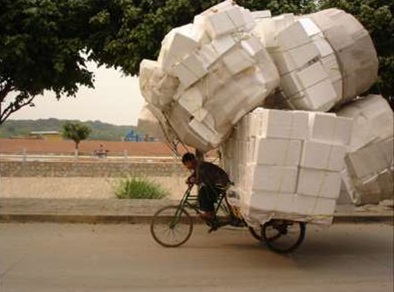27Sep
16Jul
Finding knowledge in WhatsApp World
An experiment with online analysers and AI Last month, a global gathering ‘to connect, imagine and rewire how change happens’ came to a sort of end. Called the Networks Festival, it ran for 6 weeks and involved about 1500 people in 35 different events, all gathered into a knowledge hub to watch again. But as so often, the most dynamic stuff lay in the spaces between events when participants talked among themselves. Only, because we weren’t all in one place, the corridors, cafes, and fringe spaces were all actually on WhatsApp. The organisers (Greaterthan and Fito) realised this and brilliantly created a WhatsApp Community with a range of group spaces for people to gather and generate the buzz. If you’re an organiser, keen to spot the patterns and trends, or to capture and good outcomes, then this setup offers an opportunity to find out things you’d have little hope of discovering at a...
18Jun
Slow down – it’s urgent!
The 'results' we think we want aren't the ones we need... We're in a mess right? All around us things are changing really fast and all at once. Technology is developing faster than we can think, the natural world is convulsing, economies are writhing in uncertainty and societies are polarising into fragments while politics simply can't keep up. There's too much information and opinion. We simply can't take it all in, or work out what's important or accurate and what's not. This is our world today, and we see it. We know things aren't right and we want to change it. We also know there are better ways of doing things, and we know many of them work. So how come as a whole, humans are accelerating away from where we want and need to be? We have all these brilliant collaborative platforms now, but they're not very well connected. It can feel like we're just...
07May
Designing a Network Knowledge Sharing Strategy that works
An insight into making your digital tools come to life… Through my role as a ‘firekeeper’ at the Weaving Lab, I recently got an invitation to facilitate a ‘Fix-it Station’ for the Fito Network. I agreed to run a set of three workshop sessions, and we’re now 2/3 of the way through. Fix-it Stations bring network leaders from around the world together to tackle the issues they’re finding most challenging. As Brendon Johnson, the ‘chief catalyst’ said “The idea is to tap the wealth of collective experience and bring insights that open new, or clearer ways ahead”. The topic for the station I’m running is called ‘Designing a Network Knowledge Sharing Strategy’. Fito, which means “joining diverse pieces to make one powerful effort” in the Sesotho language of South Africa, is dedicated to experimental learning within and between networks. The focus is on ideas with the potential to shape and change our world for the...
10Aug
Being decisive AND inclusive: How you can collaborate quickly
There’s a lot of talk about collaboration these days — and with it often comes a worry about making decisions. The more you try to include people and decide things together, the longer it all takes — right? Wrong! At least, it’s not necessarily so. People who want to be inclusive can easily get caught up by thinking: Everybody must agree; and Things shouldn’t happen before everyone’s been properly consulted. The trouble is, life simply isn’t like that. Decisions can’t always wait, and there’s always more than one solution because our minds are compulsively creative. The good news is that being properly inclusive and being swiftly decisive is actually quite easy(ish) as long as you keep a few simple rules. The first is to use the right decision making process for the right job. In my experience, there are three kinds of decision making: Decisions about purpose and meaning Decisions about strategy Decisions...
24Feb
The Art of Leading Together: How to develop your Collaborative Advantage
Here's an open lecture I gave at the Institute For Leadership And Sustainability (IFLAS) in Cumbria on 11th June 2019. Based on workshops I've been running since 2016, this talk squishes a full day's content into 57 mins. I suggest you start at 3m 32s to save yourself the intro whiffle. If you decide to watch, please give me feedback - I always love to hear what people find most interesting or useful so I can learn from that. https://www.youtube.com/watch?v=3f04B88cGP0&feature=emb_logo
22Feb
Books to help you work well with people
People are tricky. We’ve got a lot of moving emotional parts, so we do well when we handle each other with care. Innocent mistakes are easily made and work can really suffer if things go wrong when we’re trying hard to get it right. The trouble is, the saying ‘you can’t please all of the people all of the time’ is true. So how best to deal with that? I’ve spent 26 years studying people skills closely as I’ve helped people collaborate and build partnerships. This article is a quick share of some of the ‘go to’ books I recommend when coaching people in the art of leading together. Hope you find them as useful as me. Humankind, a hopeful history by Rutger Bregman is a valuable read because it gives clear evidence in favour of having faith in others. Bregman puts the stories of mistrust and conflict that surround us...
09Feb
Leaders in Coworking Flock to put people and planet first
I've just published a piece on my Medium page about how I'm helping to bring coworking leaders across the UK together for the benefit of people and the planet. The impact of coworking on UK society is hugely underestimated. It's a hotbed of innovation and change, and rich in people whose work reflects concerns about the 'big' social and environmental issues of today. This is partly because the sector is full of very driven independent entrepreneurs - so it's self-organising by nature. Just like nature, it's power to make vast changes comes through the magnifying effect of many small actions. The magic of self-organising comes from the freedom to act swiftly, experiment and learn. But! There are flip sides to everything, and duplication occurs if lots of independent people act fast, responding to similar conditions. That's not a bad thing - often it's part of the way the problem gets solved, but...
21Oct
Nature’s mindset can save us: Have you tuned in to her wisdom?
The problem with being rational, is that what you think is reasonable depends on what you believe. You know science is reasonable and you think you’ve got it licked — but then you bump into quantum physics and find out there’s a liquid that can run uphill, or some other crazy thing like the faster you travel, the slimmer you get. Totally nuts, but true*. These discoveries were not made by those who ignored or rejected the evidence because they couldn’t explain it. They were made by people who suspended their disbelief and opened their minds enough to see the possibility of something new. I think the chaotic times we’re living in aren’t here by chance — they’re here because so many of our most popular and firmly held beliefs aren’t as reasonable as they seem. One of the main culprits is the big disconnect from nature. There’s a gulf between the views...
25Sep










